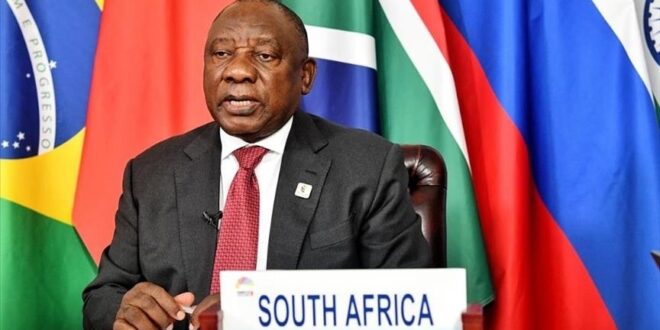Sahar Ragab
In a landmark ruling advancing gender equality, South Africa’s Constitutional Court issued a historic decision on Thursday, September 11, 2025, allowing men to legally adopt their wives’ surnames after marriage.
The verdict strikes down a discriminatory apartheid-era law that previously restricted this right to women only, declaring it unconstitutional and a “colonial import” that perpetuates harmful stereotypes.
bde This move aligns with the nation’s post-apartheid constitution, adopted in 1994, which enshrines equality and human dignity, marking a significant step toward dismantling patriarchal norms embedded in South African law.
The ruling specifically invalidates sections 26(1)(a)–(c) of the Births and Deaths Registration Act of 1992, along with related regulations, which required men to obtain special permission from the Director-General of the Department of Home Affairs to change their surnames upon marriage— a hurdle not imposed on women.3ad0af73b25e Justice Leona Theron, who delivered the unanimous judgment, emphasized that the law “serves no legitimate government purpose” and reinforces outdated gender roles by denying men a choice freely available to women, thereby violating Section 9 (equality) and Section 10 (dignity) of the Constitution.
Theron noted that the custom of women taking their husband’s surname was a Roman-Dutch legal tradition imposed during colonial times, contrasting with many indigenous African cultures where women retained their birth names and children took their mother’s clan name.
Background of the Case: A Challenge from Two Couples Against Colonial Legacy
The case originated in the Free State High Court in September 2024, where two couples challenged the discriminatory provisions.
Henry van der Merwe sought to adopt his wife Jana Jordaan’s surname but was denied, while Andreas Nicolas Bornman wanted to hyphenate his name with his wife Jess Donley Bornman’s surname “Donley” to create a double-barreled name, only to face rejection.de097574714e The High Court ruled in their favor, finding the law unconstitutional, and referred the matter to the Constitutional Court for confirmation.
The government departments of Home Affairs and Justice did not oppose the challenge, instead supporting the need for reform and proposing a 24-month suspension of the law’s invalidation to allow Parliament time to enact gender-neutral amendments.
cbefae During this interim period, both men and women can apply for surname changes under Section 26(1) without gender-based restrictions, and the court ordered the applicants’ surnames to be updated as requested while requiring the departments to cover legal costs.7baae0
Broader Impacts and Reactions: Progress Amid Controversy
This decision is part of South Africa’s ongoing efforts to eradicate gender biases rooted in its apartheid past. Since 1994, the country has made strides in women’s rights, including boosting female parliamentary representation to around 46% and enacting laws against domestic violence.
However, the ruling has sparked polarized reactions. While gender equality advocates hail it as a “progressive victory” that empowers personal choice and aligns with UN Sustainable Development Goal 5 on gender equality, critics—particularly some cultural experts and social media users—have decried it as “un-African” and a threat to ancestral traditions.
Professor Gugu Mazibuko from the University of Johannesburg called the ruling an “affront to African values,” arguing it could lead to “ancestral confusion” by disrupting clan identities.
Online, reactions ranged from celebratory memes to backlash, with one viral post joking about music producer Murdah Bongz potentially taking DJ Zinhle’s surname amid lobola negotiations.
President Cyril Ramaphosa, whose administration endorsed the appeal two years ago, stated that the judgment “strengthens our democratic values and builds a free personal identity for every citizen.
On a continental level, the ruling could inspire other African nations to review similar laws, promoting greater equity in family naming practices amid broader pushes for gender inclusivity.
With this verdict, South Africa reaffirms its commitment to constitutional equality, transforming a colonial relic into an opportunity for free choice—one that may forever alter the faces of African families.
 موقع وجه أفريقيا موقع وجه أفريقيا هو موقع مهتم بمتابعة التطورات في القارة الأفريقية
موقع وجه أفريقيا موقع وجه أفريقيا هو موقع مهتم بمتابعة التطورات في القارة الأفريقية



